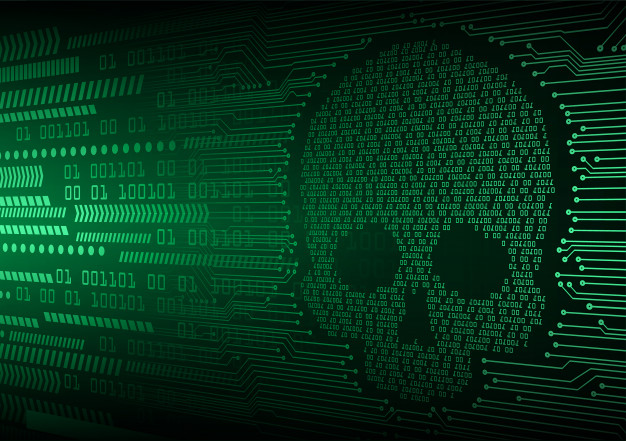Shall we pay for an Antivirus? Free Antivirus Software
Shall we pay for an Antivirus? Free Antivirus Software
The rise in the supply of
free antivirus software makes you wonder - is it worth paying for antivirus at
all? This question was also asked by the author of the article.
Every year, when it comes time
to update an antivirus license, millions of users face the same question. To
pay or not to pay for the license? The question is not whether to find a stolen
key. This is a matter of principle. Free or paid antivirus to use? This is what
it is.
In this article, we will try
to find the answer to it, or rather, I will give arguments in favour of my
point of view, and you decide whether I am right or not. Of all the variety of
paid products for protecting your PC from malware.
Security
From my point of view, a
free product cannot provide you with the same level of protection as a paid
one, because a modern antivirus is a very complex software that tens and
hundreds of programmers and virus analysts work on every day. Do you think they
can work all their time out of love for art, i.e. is free? I highly doubt it.
This means that in this case the quality of the free product will be forced to
fall. And it's easy to prove this by looking at the market leader in freeantivirus software, Microsoft. Microsoft's antivirus, Windows Defender, has
been at the bottom of the benchmarks for several years now, or simply not
participating in them. And although MS programmers do not work out of love for
art, the company has enough other services that bring money to maintain and
offer users a free antivirus. Rather, MS's problem is that they are not
information security experts. There is a lack of expertise and resources that
companies that purposefully deal with information security have.
Protection against unknown viruses
Currently, the production and use of malicious software have become a criminal industry. The number of emerging malware is already in the hundreds of thousands a day.
Therefore, it is very important that your defence is able to cope with malware that is not familiar to it. How? In this case, a combination of methods based on proactive defence comes to the rescue. Despite the fact that it is very simple to describe its recipe (if an application behaves like a virus, then most likely it is a virus), it is very, very difficult to create high-quality proactive protection.
The company's experts specifically write applications that do not perform a malicious function but try to do something "suspicious" bypassing the antivirus. Only a few products can reach the final level of difficulty. All products, mainly distributed free of charge, failed at the first or second level of testing, while Internet Security for all devices successfully reached the eleventh, highest level of complexity.
If we translate these numbers into one simple sentence, then it will be like this - free antiviruses do not cope well with new unknown threats. And, we recall, there are more than 300 thousand of them per day. then it will be like this - free antiviruses do not cope well with new unknown threats.
And, we recall, there
are more than 300 thousand of them per day. then it will be like this - free
antiviruses do not cope well with new unknown threats. And, we recall, there
are more than 300 thousand of them per day.
The main argument in favour of free antiviruses is, of course, that they are free.
But are they really free?
Apparently, this is not entirely true. Now the main thing in the work of any antivirus is the team of its developers, virus analysts. These are highly qualified specialists, one of the main reasons for keeping them is high wages. Well, who in our time can, and most importantly, wants to work for free?
Are you getting paid for your work? I am. Agree to work for free? Me not. Why then do you think that the programmers, the authors of the free antivirus, are working for the idea? Please note that if you are not paying for a product or service, then you are not a customer, but a product!
To be fair, it should be
noted that those companies that offer free software for home users also offer
paid corporate products, which, in fact, make money on. And the free versions
are both PR and free testers around the world.
So
let's think, where do you pay?
1. Payment through the use
of third-party services, in particular advertising.
2. You are used as a beta
tester to test new technologies that will then be used in the paid version.
Advertising
in free antivirus software
Currently, all large firms
that create free antivirus software actively advertise certain products or
services to users, and most importantly, they provide so-called “personal data”
(not personal, this is another term) to ad sellers. In fact, all major
antivirus vendors install by default either the browser toolbar, or their own
search page, or something similar.
At the same time, according to the advertisement, the toolbar conducts a safe search, i.e. Checks links in search results, preventing clicking on dangerous ones. But what is the antivirus advertisement silent about?
That all user preferences and movements
are logged and shown sponsored ads or sponsored search results. Moreover, in
order for the user to see ads more often, the browser home page can be forcibly
changed.
Of course, you can refuse
all this at the installation stage, just find the button "Disable toolbar
installation". But usually, users install antivirus with standard
settings.
Removing an adware add-on to your browser is not easy. As a rule, the antivirus actively protects the panel from uninstallation.
At the very least, you will
be frightened by the fact that you are no longer protected and now all the
worst will begin. As a maximum, you will see a diagnostic message that the
malware tried to change the system settings and was blocked.
However,
it should be admitted that free cheese is very attractive to users.
Of course, you can compare
the functionality of paid and free products. But, in my opinion, it is worth
remembering that most free antivirus products are updated once a day. Is it a
lot or a little? If about 300 thousand new malware appears per day, count
yourself. And even if all of them are detected by your free antivirus, the
malware will have at least a day to work. And no one will find him at this
time. Fun, isn't it?
In addition, it should be
noted that now free antiviruses are, in fact, only antiviruses, which as a
class are already of little use, since Internet Security products are entering
the market. In general, this is something like a publicity stunt - here's a free
sample for you, if you want it to be really safe - pay.
And last but not least. What
should a person do if the protection did not work? Where to run? In the case of
a paid antivirus, there is technical support, and in the case of a free one, it
is left to itself. The choice, of course, is yours, dear readers. But I made my
choice. Miser pays twice.




Comments
Post a Comment